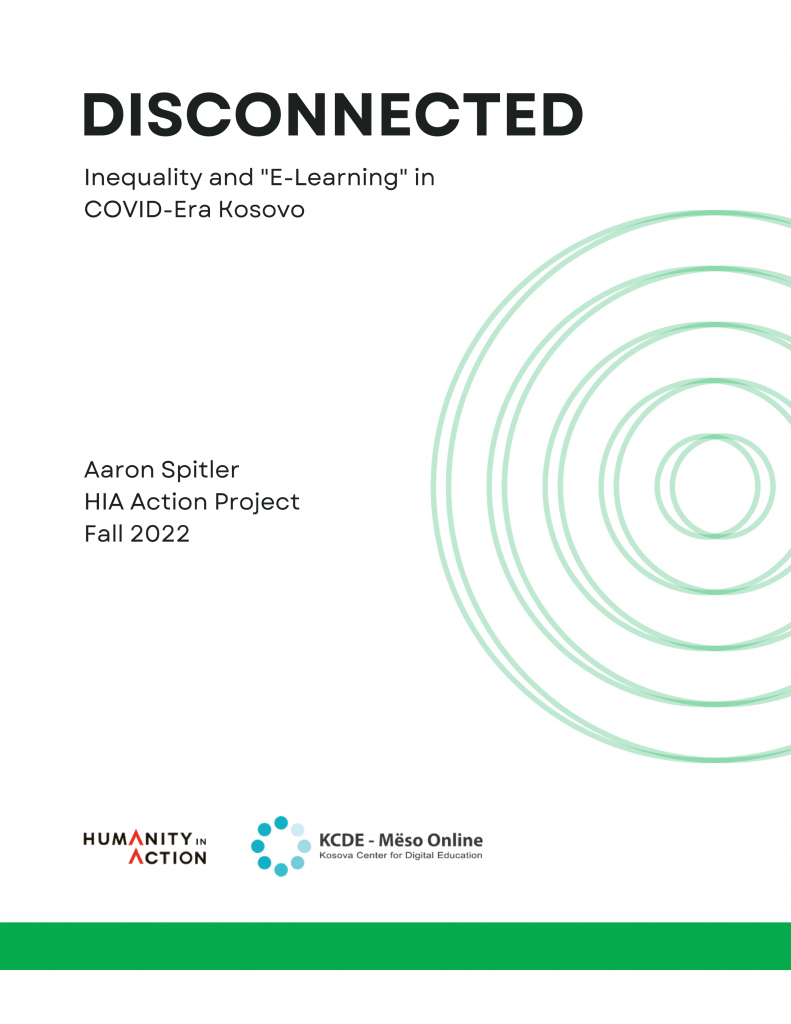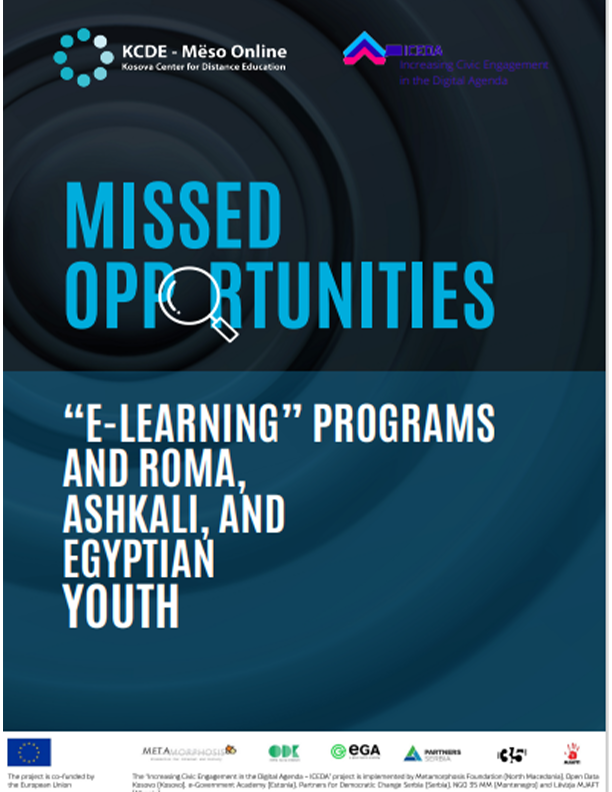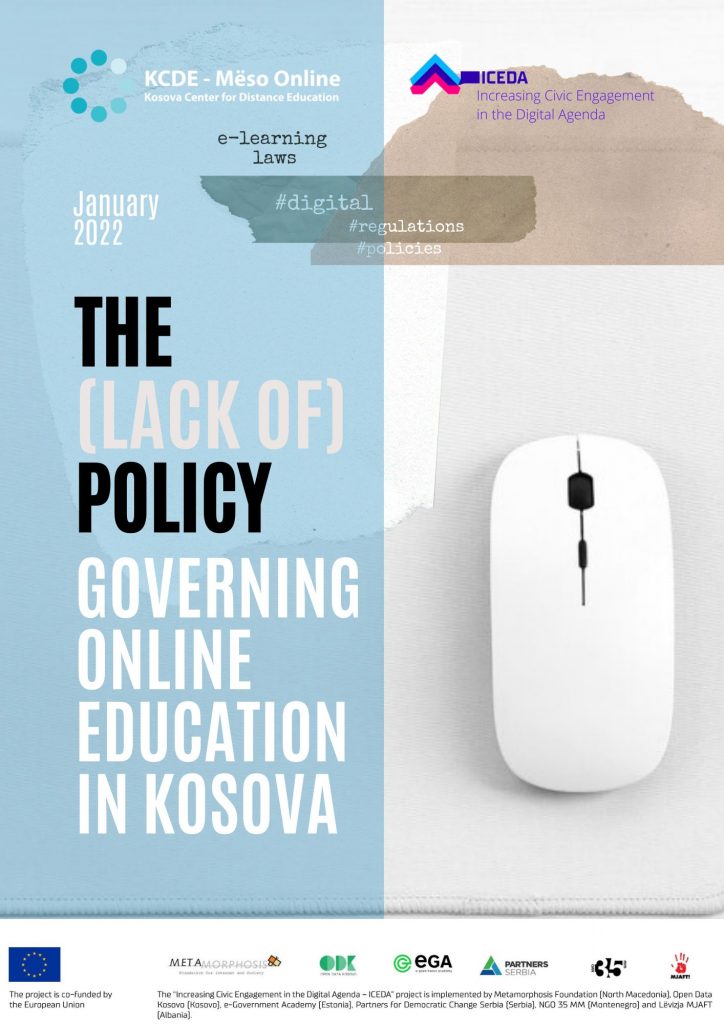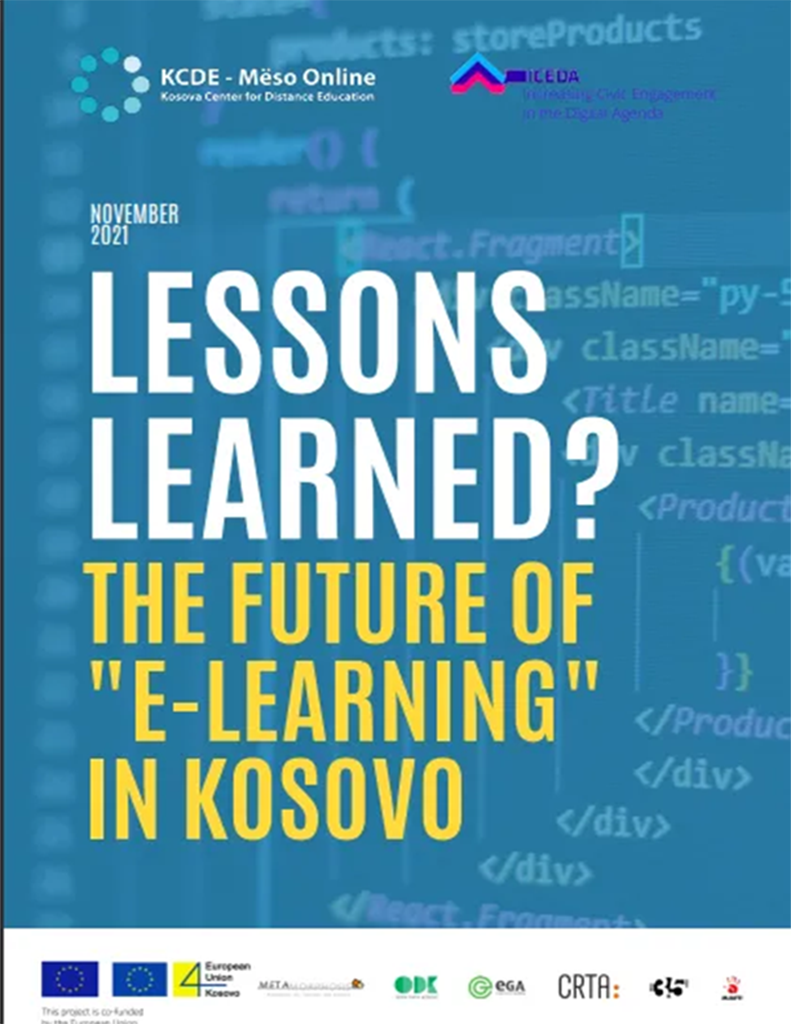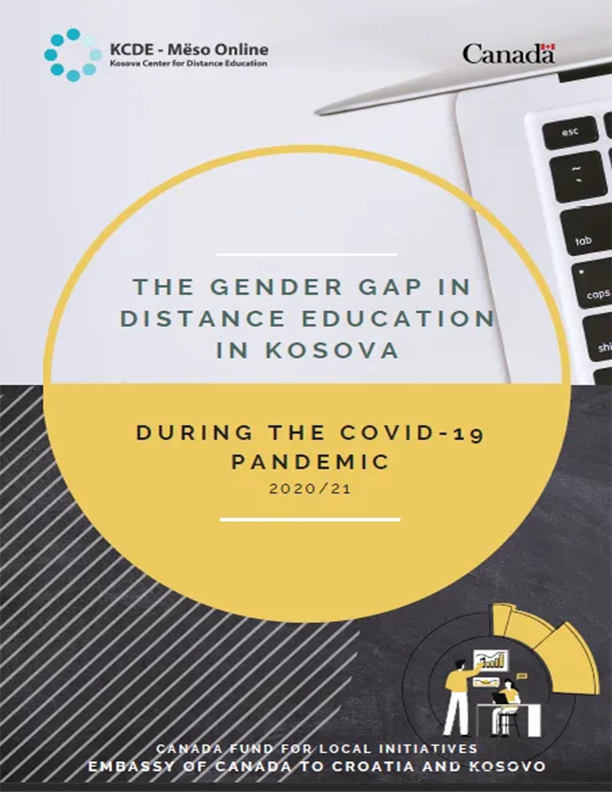PUBLICATIONS
Groundwork & research to inform the e-learning sector in Kosova, as well as to support the success of students and educators through online & blended learning platforms
Increasing higher education opportunities through equal access to e-learning and technology
opportunities through equal access to e-learning and technology” project with
the financial assistance of the HERAS social dimension small grant funding. The
contents of this document are the sole responsibility of Kosova Center for
Distance Education -Meso Online (KCDE) and can under no circumstances be
regarded as reflecting the position of HERAS..
Authors: Antigona Uka
Published by: KCDE, Dec 2022
Disconnected: Inequality and ‘E-Learning’ in COVID-Era Kosovo
Authors: Aaron Spitler
Published by: KCDE, Oct 2022
E-Learning" Programs and Roma, Ashkali, and Egyptian Youth
Although “e-learning” is a format for instruction that can make education more accessible, it is evident that it has not always been an option for Roma, Ashkali, and Egyptian youth.
This research was prepared as part of the project “Increasing Citizen Participation in the Digital Agenda – ICEDA”, with the financial support of the European Union.
Content is the responsibility of the Kosovo Center for Distance Education (KCDE), and does not necessarily reflect the views of the European Union.
Authors: Aaron Spitler
Editor: Antigona Uka
Published by: KCDE, Mars 2022
The (Lack of) Policy Gonverning Online Education in Kosova
This research was prepared as part of the project “Increasing Citizen Participation in the Digital Agenda – ICEDA” with the financial support of the European Union. Content is the responsibility of the Kosovo Center for Distance Education(KCDE) – Learn Online, and does not necessarily reflect the views of the European Union. “
Authors: Antigona Uka
Editor: Aaron Spitler
Published by: KCDE, Nov 2021
Lessons Learned? The Future of "E-Learning" in Kosovo
Two years into the pandemic, teachers across Kosovo still struggle to engage their students via “e-learning”. What is the teacher’s own perspective on the role of e-learning in the learning process? ”
This research was prepared as part of the project “Increasing Citizen Participation in the Digital Agenda – ICEDA” with the financial support of the European Union. Content is the responsibility of the Kosovo Center for Distance Education(KCDE) – Learn Online, and does not necessarily reflect the views of the European Union. “

